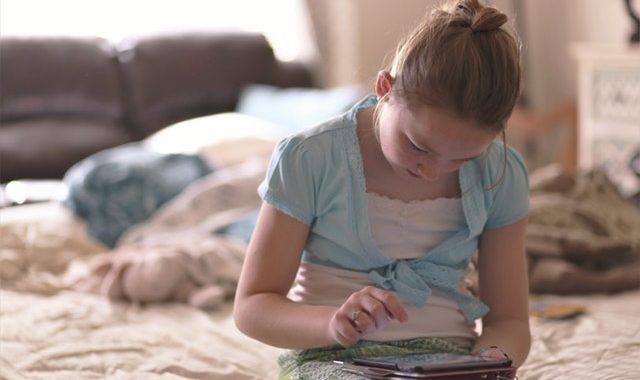My family did some traveling for Thanksgiving, and we typically use a portable DVD player to keep our 6 and 3-year-old daughters content during longer trips. Before the trip, I took the girls to the library and saw they have tablets with various educational games to check-out. So, thinking that this would be a better option than another argument over what movie to watch, I rented two. Naturally, the girls were thrilled, and immediately set to work learning how to use the tablets.
Only forty-eight hours into this little experiment, I was amazed how quickly the tablet became the focus of their attention throughout the day. They asked about it first thing when they woke up and routinely throughout the day. They even asked to bring it in the car as we drive todo errands, as if the 10-minute drive time needs to be filled with entertainment and stimulation. It wasn’t long before I heard them using the term “mine,” and being upset when reminded they will be returned to the library the following week.
I noticed that my kids were drawn into the quick stimulation and gratification offered by these devices. It’s easy for parents to offer up these devices that so swiftly entertain, soothe, and distract a cranky or impatient kid. It’s also easy to be drawn into assurances that our children are spending their screen time engaged in what my daughter promoted as “learning games.”
It is clear to me that my kids are not ready to effectively regulate their desire for these devices, which isn’t surprising given their ages. As you enter into a season where there will be more time at home, be intentional about planning ways to connect with each family member. Try a 48-hour electronics fast, and see what creative ways your kids play, what games they dust off, and how they reconnect with one another. Research continues to caution us about the potentially negative effects that overuse of electronic devices can have on the brains of kids and adolescents. Let’s heed those warnings and give our children, and ourselves, an opportunity to continue developing the skills needed to play, communicate, and regulate effectively, even if there is an easier option.

